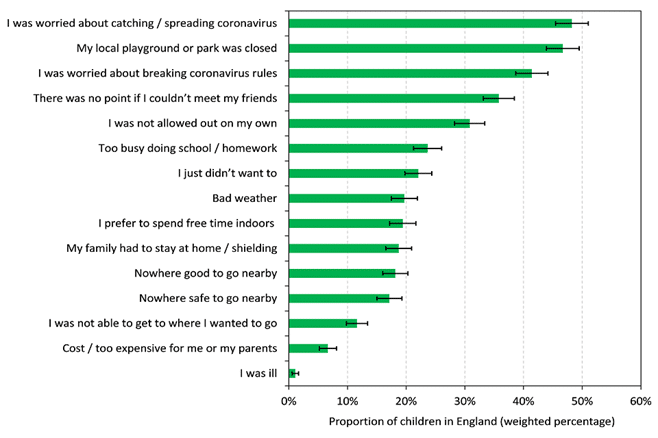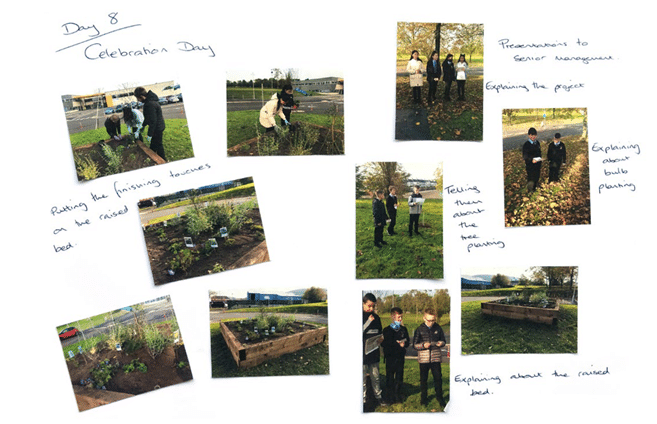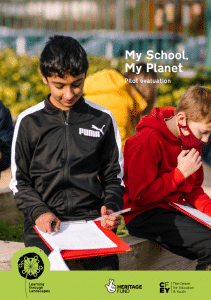Locked-down but not Locked-in: Understanding the value of spending time outdoors as pupils return to school
by Loic Menzies
25th February 2021
Outdoor learning is one of those topics that is never short of evangelists; people for whom time spent outside is a pillar of their wellbeing and identity.
However, according to a recent Natural England study, for many children, locked-down means locked-in:
- 73% of children from households with annual income below £17,000 spent less time outdoors since coronavirus, compared with 57% from households with an annual income above £17,000.
- 71% of children from ethnic minority backgrounds reported spending less time outside since coronavirus, compared with 57% of white children
- Fears about coronavirus played an important role in limiting children’s access to the outdoors but closed playgrounds and parks were also important factors.

Today, we’re publishing a report showing how one charity, Learning through Landscapes (LtL), helped 49 schools across the UK to make use of their outdoor space when pupils returned to school last Autumn. Our research shows that many of the 1,029 pupils who participated increased their physical activity, rebuilt friendships and gained new knowledge whilst surprising themselves with how much they enjoyed getting their hands dirty.
“My neck was killing me when I was digging, but I enjoyed it.”
Pupil
“Just the fresh air, experience of being out, the moving around, the trying of equipment, the using of equipment. Children couldn’t believe how much energy they were expending within that and how good that felt just being outside.”
Senior leader
“There is no greater pleasure than getting a spade deep down into hard soil”
Pupil

On the other hand, one of the things we were aware of when designing the study was that it’s not enough to tell heart-warming stories about the value of campfires and fresh air.
We wanted to explore exactly what (if anything) changed for children as they took part in weekly outdoor learning sessions as part of the My School My Planet (MSMP) programme.
We therefore used robust, validated measures like the Short Warwick Edinburgh Wellbeing and the Connection to Nature scales wherever possible. Of course, there’s always a trade-off between tailoring measures to a particular programme and maintaining fidelity to a rigorous framework, so in some cases measures needed adapting (like the Concise Physical Activity Questionnaire).
Opting for properly constructed measures can be scary because you tend to get less impressive sounding headline stats than if you just ask something like “To what extent do you agree that you feel happier,” but using a battery of robust measures means evaluations can build on and contribute to an ever-growing body of research. It also means scores can be compared with national averages, where appropriate.
On the other hand, averages can mask important stories. We therefore also spent time gathering and analysing ‘artefacts’ collected by trainers and teachers, including photos of children participating in activities and their own accounts of what they were up to.

Combining both types of evidence gave us the depth we needed to understand the MSMP pilot in detail and this will help LtL to maximise the programme’s impact in future. Meanwhile gathering and analysing data from over 600 pupils meant we could identify trends and spot notable changes in relation to a number of outcomes, as well as allowing us to cut data in different ways to see how impact varied across groups.
Our study demonstrates how education programmes based in school-grounds can support pupils as they reintegrate, giving them time to learn whilst rebuilding relationships and reconnecting with nature.
By balancing depth and scale, nuance and standardisation, we hope to show ever-more schools that no child, from any background, need spend the rest of 2021 locked-in.
No child, from any background, should spend the rest of 2021 locked-in. Share on XFind out more about Learning Through Landscapes here
Download the My School My Planet evaluation here


Comments